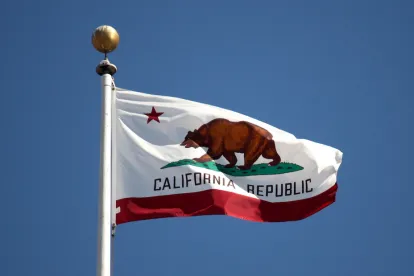In a case of mistaken identity and a web of conflicting testimony, a Fresno local business successfully appealed a price gouging fine. The saga between the store and the City of Fresno offers insights in the importance of maintaining proper business records to defend potential price gouging allegations.
On April 8, 2021, an Administrative Hearing Officer for the City of Fresno, California dismissed an Administrative Citation issued by the City Attorney’s Office against a local business for allegedly price gouging. City Inspectors issued the $10,000 citation in March 2020 while Fresno was under a State of Emergency. The store owner appealed the fine, and after a virtual hearing, the Hearing Officer determined that the City had not met its burden of proving each element of the case against the business.
The price gouging provision in the Fresno Municipal Code (“FMC”), prohibits any person, during a declared state of emergency, from selling or offering for sale certain products at more than 10 percent of the price charged for those products immediately prior to the declaration of the emergency. Products covered by the provision include, “consumer food items or goods, goods or services used for emergency cleanup, emergency supplies, medical supplies, or building materials.” However, if the seller’s costs have increased, then the seller may not charge a price greater than 10 percent more than the seller’s total cost plus the usual business mark-up. Violating this section of the Code can result in a misdemeanor, including either a maximum fine of $1,000, imprisonment for up to one year, or both. Alternatively, the City can issue an administrative citation of up to $10,000. See FMC § 2-513.
The City alleged that the local business had quoted $16.00 for a 24 pack of 16.9 ounce bottles of water. The business appealed the fine, claiming the quoted price was for a different product—a 24 pack of 20 ounce bottles of water—and contending the City had failed to review the proffered records regarding the store’s costs and prior sales.
According to the evidence presented at the hearing, two City inspectors planned to visit the store on March 19, 2020 after their office received a complaint that the store in question had engaged in price gouging relating to the sale of bottled water. The first inspector testified he entered the store, asked the clerk the price of a case of water, and, after pointing at the case of water, the clerk replied it was $16.00. The inspector testified he “voiced his surprise” at the price of the water, declined to make the purchase, re-joined his colleague outside the store, and informed her of the quoted price for the water “close to the sales register at the front of the store.” Next his partner testified that she entered the store, identified herself to the clerk, and was quoted a price of $9.99 for, what she believed to be, the same pack of water as her partner.
On cross-examination, the attorney for the store pressed the inspectors on the specific size water bottles at issue and the baseline prices the inspectors had used in determining that a price gouging violation had occurred. The City had failed to document whether the water bottles referenced by both inspectors were indeed 16.9 ounces. Instead, the attorney argued, the price differences were easily explained by the fact that the $16.00 price was quoted for a case of 20 ounce bottles. Further, the inspectors had not scanned the water bottles in question to ascertain the price or the SKU number at the register. The store’s attorney also elicited testimony from the inspectors that they had not obtained evidence of the price charged by the local business immediately before the state of emergency was declared. Instead, the investigators used evidence of other retailers’ prices in early March 2020.
Next, the store’s business manager testified that the store had only recently acquired 16.9 ounce bottles at the time of the inspectors’ visit and accordingly that product was in storage awaiting processing in the store’s computer. At the time of the inspectors’ visit, he declared, the store only sold 20 ounce water bottles. Further complicating the matter, the Hearing Officer noted the absence of the store clerk who had communicated with the inspectors on the day in question. The clerk was unable to attend the hearing due to a family emergency.
Despite the tangled facts, the Hearing Officer concluded that the City had failed to prove two elements of the case by failing to provide sufficient evidence as to the specific product at issue in the citation and failing to calculate the retail price charged by that company prior to the state of emergency. Accordingly, the case against the business was dismissed.
In price gouging cases such as this, businesses across all industries can learn valuable lessons about the prosecution of a price gouging case. First, the government carries a heavy burden of proving its case. It must prove each element under the specific terms of the statute. Second, identifying the specific product at issue is vital – particularly noting sizes, styles, or other upgrades that make two items different products. Finally, business ought to maintain proper records of the timing of product purchases, the costs for these products, and historical pricing data.





 />i
/>i
